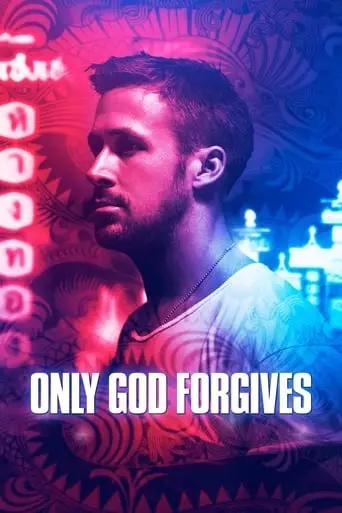
Only God Forgives (2013) Watch Online Free
Julian, who runs a Thai boxing club as a front organization for his family’s drug smuggling operation, is forced by his mother Crystal to find and kill the individual responsible for his brother’s recent death.
Only God Forgives (2013), directed by Nicolas Winding Refn, is a visually striking and deeply unsettling film that explores themes of violence, guilt, and redemption. Set in Bangkok, the story follows Julian (Ryan Gosling), a drug dealer who runs a boxing club as a front for his illegal activities. Julian’s life is turned upside down when his older brother, Billy, rapes and murders a young prostitute. Billy is subsequently killed by a brutal police officer, Lieutenant Chang (Vithaya Pansringarm), who is also known as the “Angel of Vengeance.”
Julian’s mother, Crystal (Kristin Scott Thomas), a manipulative and cold-hearted woman, arrives in Bangkok to demand revenge for Billy’s death. She pressures Julian to avenge his brother by finding and killing those responsible. However, Julian’s internal struggle intensifies as he grapples with his own feelings of guilt and inadequacy. The film follows his journey as he faces Chang, a man who represents an almost divine force of justice, meting out punishment in a way that challenges Julian’s sense of morality.
The plot is minimalistic, with the film focusing more on atmosphere, symbolism, and the psychological battles of its characters. The narrative unfolds slowly, with long, contemplative silences and intense moments of violence, making it a film that leaves much to interpretation.
The film’s central theme is the idea of retribution and the lack of forgiveness in a world ruled by violence. The title, Only God Forgives, reflects the notion that in this brutal world, only a higher power can absolve sins, as human justice is harsh and unforgiving. Lieutenant Chang embodies this idea, acting as a figure of divine retribution, carrying out acts of violence with an unsettling calmness that borders on the supernatural.
The film also explores themes of guilt and redemption. Julian, who is haunted by his past actions and his mother’s influence, seeks redemption but is unsure how to achieve it. His mother’s cruel manipulation and his own internal conflict create a sense of entrapment, where escape seems impossible. The violence in the film is not just physical but psychological, as the characters are trapped in cycles of vengeance and remorse.
Another important theme is the idea of masculinity and weakness. Julian, despite his physical strength, is portrayed as emotionally fragile and passive, in stark contrast to the more dominant and violent figures around him, such as his mother and Lieutenant Chang. This contrast underscores the film’s exploration of power dynamics and the internal battles of its characters.
Only God Forgives has had a polarizing effect on audiences and critics. While some praise its visual style, atmospheric tension, and philosophical depth, others criticize its slow pace, minimal dialogue, and lack of character development. The film challenges conventional narrative structures and refuses to offer clear resolutions, which can be both frustrating and thought-provoking for viewers.
The film’s haunting visuals, often drenched in neon lights and bathed in red and blue hues, contribute to its dreamlike quality. The soundtrack, composed by Cliff Martinez, adds to the film’s surreal atmosphere, creating a sensory experience that enhances its themes of violence and existential struggle.
After watching Only God Forgives, you may feel a sense of unease and discomfort. The film’s stark violence and existential themes leave a lasting impression, challenging your perceptions of morality and justice. You might feel unsettled by the lack of resolution and the ambiguous nature of the characters’ actions. The slow pacing and minimal dialogue could evoke a sense of isolation, as the film’s world feels distant and cold. Overall, it’s a thought-provoking experience that will linger long after the credits roll
